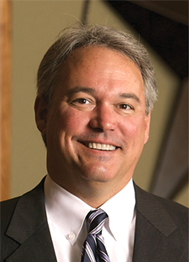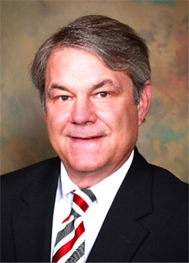By Janet Elliott
Staff Writer
AUSTIN (March 12) – Defense and plaintiffs lawyers agree that Texas needs a streamlined, cost-effective way to litigate smaller disputes, and an expedited trials provision in the Legislature’s loser-pays law moves the state in that direction.
But they split over whether strict limits on discovery, trials and appeals should be voluntary or mandatory for disputes under $100,000.
House Bill 274 charges the Supreme Court with writing rules to improve efficiency and reduce the cost of small-ticket litigation. It emerged as the key provision out of the legislation after strong loser-pays provisions were weakened.
While previous efforts at tort reform have led to fewer lawsuits, many believe the newest law may actually result in more cases being filed and tried in state courts. (Please see “Civil Jury Trials Plummet Texas”)
Before that happens, however, the Supreme Court must decide whether the quickie trials should be mandatory or voluntary, an issue on which the Legislature was silent.
Alan Waldrop, a former court of appeals justice who now represents defendants as a partner in the Austin office of Locke Lord, says the best way to improve the way the courts handle smaller disputes is to make the procedures mandatory.
“We need to come up with something that possibly will make real change,” says Waldrop, a former court of appeals justice.

Brad Parker, a Fort Worth attorney whose firm Parker McDonald represents plaintiffs in auto accidents, served on a task force appointed by the high court last fall to recommend new rules. Parker says expedited trials could work well for small car crash cases and mom-and-pop business disputes, but only if both sides agree. Otherwise, a plaintiff could get around the rule by damages over $100,000.
“Everyone who has looked at this and who works in the trial courts for a living, they all agree it needs to be a totally voluntary system,” Parker says.
David Chamberlain, another task force member, agrees. Texas can write the strictest rules possible and avoid triggering due process concerns if it allows parties to agree whether to fast track their cases.

“You can do more, save more money and make things go faster if you have a voluntary rule,” says Chamberlain, whose firm Chamberlain McHaney often represents defendants in litigation.
Task Force Splits
Six members of the task force voted to recommend a mandatory rule with an uncapped voluntary alternative, while five members voted to recommend only a voluntary rule.
The task force chairman was Tom Phillips, a former Supreme Court chief justice who now is a partner in the Austin office of Baker Botts. He voted for the mandatory rule.
In a recent interview Phillips said that expedited trials could succeed where previous efforts to limit discovery failed if there is a sufficient public relations push for lawyers to use the procedures.
The process reminds Phillips of the early days of his law practice when each side took only one deposition and one quick set of interrogatories – which the opposing side actually answered – and trials took only a day or two. As litigation entered what Phillips calls the “era of hyper-discovery,” the expense became so great that it effectively closed the courts to most Texans.
“Very few people can afford a full trial and appellate system,” Phillips says.
Phillips says he is worried that it will be hard to predict when filing a case that the judgment will be less than $100,000 when attorney fees, interest and costs are included.
In January, Waldrop and Chamberlain presented the cases for mandatory and voluntary compliance to the Supreme Court Advisory Committee. By a show of hands, the committee voted 26-17 in favor of the voluntary version.
The vote is not binding on the high court, which will consider the rule in administrative conference, with the goal of having it published for comment later this year.
Justice Nathan Hecht, the court’s liaison to the advisory committee, says both plaintiffs and defendants have much to gain through reducing the cost of getting disputes to trial.
“If it is cheaper and better, it should attract more cases back to the courthouse. That is good for the trial bar, good for trial judges and good for the whole system,” Hecht says.
If the new procedures work for cases under $100,000, they might be applied to cases under $250,000 or $500,000, and “could make us rethink the whole system,” he adds.
Hecht says he hasn’t made up his mind on the voluntary vs. mandatory question.
More Trials Expected
Oftentimes, Chamberlain says, the only real dispute in a lawsuit is over what the case is worth, and a voluntary, expedited rule can give litigants the satisfaction of having their disputes heard, Chamberlain says.
He believes the result will be more trials, but trials that are swift and simple, allowing more young lawyers to gain courtroom experience.
“There is a new generation of lawyers with no experience trying cases,” Chamberlain says. With most courtroom battles reserved for big-ticket cases and experienced lawyers, wins and losses can stick with a lawyer for a long time.
Cutting the stakes – in both time and money – could embolden trial-shy attorneys, particularly when appeals are strictly limited.
Both the mandatory and voluntary proposals require automatic disclosure of all the evidence expected at trial – a “revolutionary change in discovery,” according to Chamberlain. And both versions prevent alternative dispute resolution as another way to lower costs.
Chamberlain said about 20 other states have provisions for expedited trials, generally upon agreement of the parties.
To read the task force report and proposals, go to:
http://pdfserver.amlaw.com/tx/SCAC_Expedited_Actions_Final_Task_Force_Report.pdf
PLEASE NOTE: Content of The Texas Lawbook is controlled and protected by specific licensing agreements with our subscribers and under federal copyright laws. Any distribution of this content without the consent of The Texas Lawbook is prohibited.

Leave a Reply
You must be logged in to post a comment.